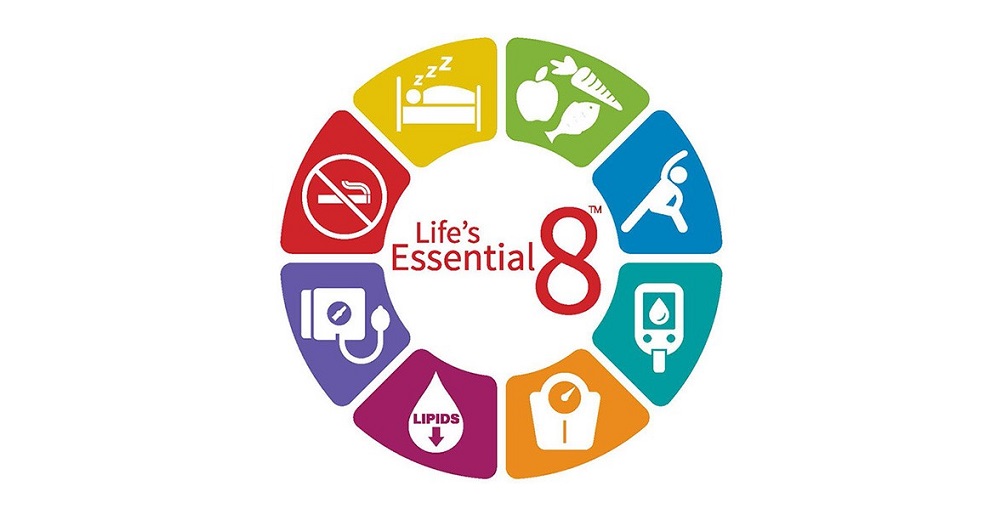Heart Health and the Pharmacist’s Role

Image provided by the American Heart Association
As American Heart Month, February is a time when cardiovascular health is at the forefront for many, but for Eric MacLaughlin, Pharm.D., professor and chair for the Department of Pharmacy Practice at the Jerry H. Hodge School of Pharmacy, Texas Tech University Health Sciences Center in Amarillo, it is a daily focus.
MacLaughlin’s teaching, practice and research focus on chronic cardiovascular diseases, and he is a Certified Hypertension (high blood pressure) Clinician. In recognition of American Heart Month, we spoke with MacLaughlin about cardiovascular health and the related role pharmacists play.
“If you add up every other cause of death in the U.S., cardiovascular disease is still higher than all of them put together,” shared MacLaughlin. “Cardiovascular issues are ubiquitous across health care specialties. They impact everyone, not just those who specialize in cardiology.”
Part of the reason for this is that cardiovascular disease describes a range of conditions that affect the heart or blood vessels, including coronary heart disease, heart attack, stroke, and high blood pressure among others.

Eric MacLaughlin, Pharm.D.
“High blood pressure is the number one cause of stroke, and a leading cause of heart failure, heart attacks, and cardiovascular disease,” said MacLaughlin. “So, if you can control someone’s high blood pressure to start with you can prevent a lot of these other issues and reduce their risk of having a heart-related event.”
According to the CDC, nearly half of U.S. adults have high blood pressure, yet only about 1 in 4 of those individuals has their high blood pressure under control.
In 2020, the U.S. Surgeon General released a call to action to prioritize blood pressure control nationally, a move that MacLaughlin sees as positive.
“High blood pressure is a preventable issue that is tied to many other issues, and it affects patients across racial and ethnic groups,” said MacLaughlin. “It’s something we should all be aware of and pharmacists have an opportunity to play a big role in helping with this issue.”
According to the American Heart Association, the best way to manage your blood pressure is to eat smart, move more, manage your weight, not use nicotine, and get good sleep. Combine those with controlling cholesterol, managing blood sugar, and managing blood pressure, and you have Life’s Essential 8, the key measures for improving and maintaining cardiovascular health.
Pharmacists are in a position to help patients manage both the health behaviors and health factors that make up the Life’s Essential 8.
“Medication therapy management is the obvious way pharmacists can help patients get heart-related issues under control but something I stress to my students and patients is that drug therapy is only one part of treatment,” shared MacLaughlin. “The non-drug therapy is just as important.”
Non-drug therapy measures that pharmacists routinely provide include, but are not limited to, nicotine cessation therapy and counseling on other nonpharmacologic matters such as diet and exercise.
“The whole idea of non-drug therapy is not just treatment, but also prevention,” said MacLaughlin. “If you manage weight, become more active, and eat better, you can prevent many heart-related issues.”
According to MacLaughlin, implementing healthier behaviors is something anyone can do no matter where they are at with their heart health.
“Even if you have had a heart-related event, or have diagnosed coronary heart disease, it’s never too late to start practicing healthier habits,” said MacLaughlin.
Related Stories
The John Wayne Cancer Foundation Surgical Oncology Fellowship Program at Texas Tech University Health Sciences Center Announced
TTUHSC is collaborating with the John Wayne Cancer Foundation and has established the Big Cure Endowment, which supports the university’s efforts to reduce cancer incidence and increase survivability of people in rural and underserved areas.
Making Mental Health a Priority in the New Year
Sarah Mallard Wakefield, M.D., a psychiatrist with Texas Tech Physicians, talks about strategies to combat widespread and growing anxiety.
TTUHSC Dean to be Inducted into the National Academies of Practice as Distinguished Fellow
Gerard E. Carrino, Ph.D., MPH, dean of the TTUHSC Julia Jones Matthews School of Population and Public Health, will be inducted into the National Academies of Practice (NAP) as a Distinguished Fellow of the Public Health Academy.
Recent Stories
The John Wayne Cancer Foundation Surgical Oncology Fellowship Program at Texas Tech University Health Sciences Center Announced
TTUHSC is collaborating with the John Wayne Cancer Foundation and has established the Big Cure Endowment, which supports the university’s efforts to reduce cancer incidence and increase survivability of people in rural and underserved areas.
TTUHSC Receives $1 Million Gift from Amarillo National Bank to Expand and Enhance Pediatric Care in the Panhandle
TTUHSC School of Medicine leaders accepted a $1 million philanthropic gift from Amarillo National Bank on Tuesday (Feb. 10), marking a transformational investment in pediatric care for the Texas Panhandle.
Texas Tech University Health Sciences Center Permian Basin Announces Pediatric Residency Program Gift
TTUHSC Permian Basin, along with the Permian Strategic Partnership and the Scharbauer Foundation, Feb. 5 announced a gift that will fund a new pediatric residency.
